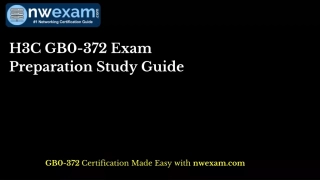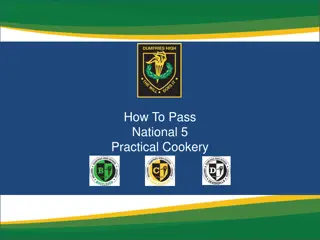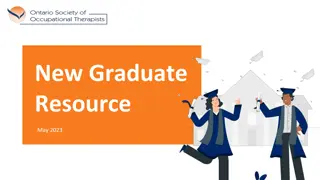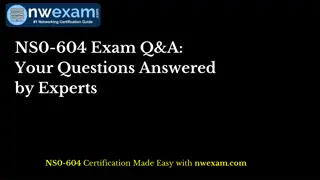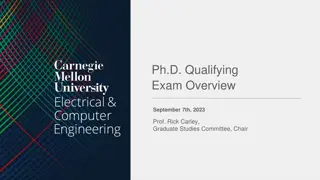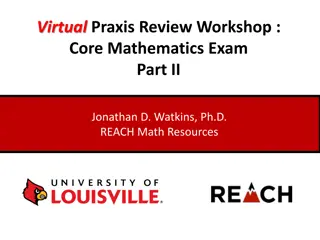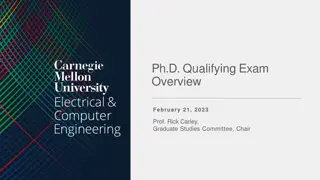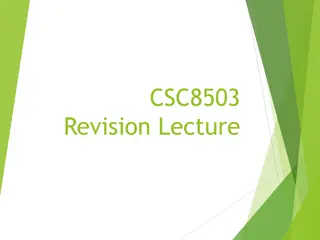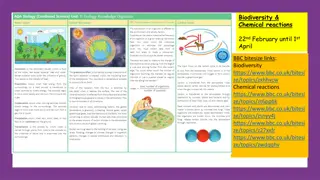
Effective Exam Techniques to Maximize Performance and Time Management
Discover common-sense exam techniques for staying calm, organized, and focused during exams. Learn how to understand instructions, plan your time effectively, and succeed in answering questions to reflect your knowledge and hard work.
Download Presentation

Please find below an Image/Link to download the presentation.
The content on the website is provided AS IS for your information and personal use only. It may not be sold, licensed, or shared on other websites without obtaining consent from the author. If you encounter any issues during the download, it is possible that the publisher has removed the file from their server.
You are allowed to download the files provided on this website for personal or commercial use, subject to the condition that they are used lawfully. All files are the property of their respective owners.
The content on the website is provided AS IS for your information and personal use only. It may not be sold, licensed, or shared on other websites without obtaining consent from the author.
E N D
Presentation Transcript
Exam techniques www.kent.ac.uk/student-learning-advisory-service
Maximising your performance Maximising your performance You ve revised as much as you can (*Planning your revision) You ve practised sitting past papers (*Revision skills, Online exams) You ve stayed healthy for the exams (*Managing exam stress) * See these other Online Bitesize Skills Development sessions for further guidance So what else can you do? The following common sense exam techniques will allow you to stay calm, organised and focussed as you sit your exam, helping you maximise your performance to give a true reflection of the work you have done, and the knowledge you have gained.
Understand the instructions Understand the instructions They can be simple, but sometimes need careful consideration: CB343/17 LEVEL 4 EXAMINATION The Global Business Environment Thursday 1 June 2020 : 9.30am 12.30pm (Three hours) There are TWELVE questions. Section A has TWO questions and Section has TEN questions. The marks for Section A add up to 50 and the marks for Section B add up to 50. Candidates must answer SEVEN questions. ALL questions from SECTION A and any FIVE questions from section B. Credit will be given for use of examples from real life business practice
Understand the instructions Understand the instructions Read the instructions more than once, to be clear about: - Whether there are different sections or parts to the paper - The number of questions you need to answer from each - The points allocated to each section or question - Any additional instructions Look out for technical instructions in online exams Identify and jot down key instructions if it helps you
Plan your time effectively Plan your time effectively Allocate time according to the points value of sections and individual questions Allow time for checking and tidying your work before you submit it Make a note of when you should be starting each new section or essay Keep track of the time and try to stay on schedule, so you finish the whole paper
Example Example Module Questions on offer You have to answer % for each question Total hours Time per question Comments SE573 8 2 essays 50% 2 1 hr Include time for checking and tidying EC302 Section A: 1 Section B: 6 Section C: 6 1 essay 1 essay 1 essay 50% 25% 25% 3 90 minutes 45 minutes 45 minutes Allocate your time according to % points value SO300 Section A: 3 Section B: 10 1 essay 5 short answers 50% 50% 2 1 hr 12 mins x 5 Stay on schedule to answer EVERY question required.
Choose questions carefully Choice of questions? Make first selection of questions Read questions again, carefully Make final selection of questions Jot down your time plan Go for the easiest and highest scoring ones first No choice of questions? Read all the questions Read questions again, rapidly but carefully Jot down your time plan Go for the easiest and highest scoring ones first* * If technically possible/permitted in an online exam
Tips: Writing essays in exams Take time to fully understand the question - What is the topic? What is it asking you to do? Does it have different parts? Quickly draw up an essay plan - Brainstorm everything associated with topic - Group into main themes/points + arrange in logical order Write with a clear structure - Very brief intro; main point/support; main point/support etc; brief conclusion - Get your main points across first Work to a schedule, for example - 10 mins understanding/planning; 45 mins writing; 5 mins checking For guidance on every aspect of essay writing including Considering an essay question see additional Online Bitesize Skills Development sessions
Tips: Writing essays in exams Write legibly, clearly and avoid waffle Keep the question in front of you to stay focussed If you get stuck, stay calm - Pause, re-read title, check your plan and answer so far, move on If you are running out of time at the end, stay calm - Provide bullets points of the points you would have made, plus a conclusion To avoid mistakes, allow time to check and tidy up your work - Amendments clear; workings out deleted; labelling neat and correct Cite any authors/sources that you can remember The tips above also apply to short answers. For guidance on every aspect of essay writing including Academic writing and language , and Proof-reading see additional Online Bitesize Skills Development sessions
Tips: Short answers Tips: Short answers In addition, some techniques relate strongly to short answers: Adhere strictly to a schedule to complete all questions required Briefly plan your answer (main point, main point, main point) before starting your answer Go straight to your heart of your answer (no need for an introduction) - E.g. The three key factors in X are Stack up valuable points by going for the easiest and highest scoring questions first* * If technically possible/permitted in an online exam
Tips: Multiple choice questions Tips: Multiple choice questions General techniques (may also apply to short answer exam papers) Skim-read the paper and questions Where you think of a point/a piece of information at once, make very brief notes with reference to the question Now start your answers keeping to your time-plan Answer every question required Allow time for editing/going back through your answers
Multiple choice: 3 Multiple choice: 3- -stage technique stage technique Maximise your performance in multiple question papers * * For paper exams, and if technically possible/permitted in an online exam 1. Move through the questions answering all those you are sure about the Yes questions. Keep moving, ignoring questions you re not sure about or don t know the answer to 2. Read through again, and try to answer the questions you re unsure of the Maybes . Think logically, eliminate incorrect answers, consider maybe answers, choose the most likely 3. Finally, read through again and try to answer the most difficult the Don t knows . Use logic to make an educated guess.
Key things to remember Key things to remember Read everything instructions and questions - very carefully Draw up and and stick to a time plan Quickly plan your answer (essays/short answers) before writing Answer easy/high points questions first (where possible) Allow time to check your answers Answer all questions required
Further resources Further resources For guidance on the broader range of revision and exam skills please go to the SLAS webpages http://www.kent.ac.uk/student-learning-advisory-service where you can: Book a one-to-one appointment with a SLAS adviser Attend a range of Online Bitesize Skills Development sessions which include the topics outlined here, including Essay writing in exams , Revision skills and Online exams
Get in touch Get in touch SLAS CONNECT To book an appointment: www.kent.ac.uk/student-learning-advisory-service learning@kent.ac.uk SLASkent KentUniSLAS SLASkent





